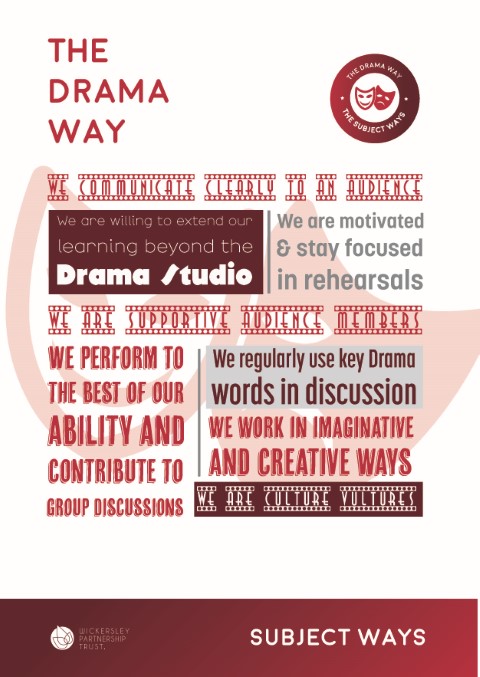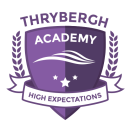Curriculum
Drama
Subject Staff
Miss Gibbons
The Drama Way
Our subject has a ‘Subject Way’ at the heart of it. Our Subject Way is designed to help students become young subject specialists. The Subject Way has two main purposes:
Firstly, to teach students the vital skills they need to achieve their full potential and gain the very best grades they can. Secondly, to teach students how each subject relates to the wider world, incorporating the life skills they will learn.
It is our belief that knowing how what you learn links to the wider world, brings a subject to life and therefore improves overall understanding and engagement.

Curriculum Intent
At Wickersley Partnership Trust we aim to ensure our Drama curriculum is designed to sequence learning and embed the key skills and knowledge that are required for our students to become confident, creative and insightful. Students are encouraged to be not only independent but also collaborative and cooperative learners. We teach a wide range of acting and technical design skills that fosters an enthusiastic appreciation of the theatrical form and a sense of enjoyment and fascination for stories and characters, their messages and themes. Through Drama, our students explore a range of social issues and cultural influences. The opportunities that we offer beyond the drama studio aim to provide unforgettable experiences and a vital contribution to school life.
INTENTION 1 – The removal of barriers to learning
In Drama and Performing Arts we enable and empower our students to access the curriculum through developing their skills in literacy, numeracy, oracy and through mastering a wide vocabulary.
Literacy
Our Drama curriculum provides a wide range of literacy opportunities. Students read, explore and perform plays from a variety of periods, cultures and playwrights. To assist in the creation of devised drama, they read extracts from novels, poetry, media articles and a range of non-fiction texts. Writing skills are developed through the collaborative writing of original scripts and through the independent critical analysis of performance texts. Literacy in Drama extends beyond the written word; the subject also encourages students to become literate semiotic readers of signs, symbols and any other imagery that is used to create meaning.
Numeracy
In Drama, students develop their numeracy ability when they create and represent data in numerical and spatial forms. Students may be required to apply numeracy skills such as calculation, estimation and measuring when exploring production and technical aspects of theatre. Calculating production budget costs, estimating stage plan dimensions and recording costume measurements are some ways in which numeracy skills can be developed in a practical context. Research for the development of devised drama may also give students the opportunity to handle, analyse and interpret data.
Oracy
Exceptionally rare is the Drama lesson that doesn’t provide a range of opportunities for students to develop their oracy skills. Speaking – and listening – are an intrinsic part of our curriculum where reading aloud, discussing ideas, presenting material, role play, improvisation, pair work, group work and dramatic performance are central key learning activities. Students are enabled to become confident and articulate orators through their work in Drama where prominence and focus is given to specific speaking skills such Received Pronunciation, accent, dialect, pitch, tone, pause, intonation, volume, pause, register and rhetoric. Consideration is also giving to the preparation and healthy maintenance of the speaker’s voice.
Vocabulary
In Drama lessons we enable and expect our students to employ a wide and rich breadth of vocabulary in both written work and the spoken word. We embed the technical terminology of drama and theatre throughout all key stages and consistently promote an awareness of the potential and power of effective language use. Students are exposed to a diverse vocabulary range through their reading of plays and other texts from a variety of different periods, cultures and social contexts.
INTENTION 2 – Developing skills for learning
Students are given opportunities to learn, develop and refine their skills in every lesson and beyond. We aim to present our students with exciting and relevant stimulus material which inspires them to be creative, considered and reflective in their personal responses. Learning is sequenced to facilitate the building of a skillset that includes both practical and academic approaches to the subject.
INTENTION 3 – Fostering personal attributes
Purposeful, positive relationships are vital to the success of students in Drama. Pair work, group work, class discussion, rehearsal and the presentation of work to an audience are all core ways in which we work. Self-expression, honesty and openness are encouraged at all stages. Creativity, originality and generosity are qualities that are essential in Drama and the importance of a collaborative approach to the work is an imperative. Students are expected to share and cooperate, but the subject provides countless opportunities for leadership and for students to realise their own personal vision. Resilience and resourcefulness are also key qualities that we aim to instil in our students.
INTENTION 4 – Enriching student experiences and broadening their horizons
Students are actively encouraged to take as deep an interest as possible in our subject. They are required to engage with challenging and stimulating play texts and to thoroughly and creatively explore numerous social, historical and cultural issues. We aim for students to experience live theatre performances regularly and for students to gain an understanding of relevant vocational and career pathways through visits to workplaces and through dialogue with theatre industry professionals. Theatre tours and actor workshops are other ways in which students have widened their experience and knowledge of theatre. Extra-curricular performance opportunities should allow students to hone their craft in quality productions, with high production values and to a wide audience.
Curriculum
Year 7 | ||
7.1 Play Text Study: The Demon Headmaster | 7.2 Thematic Exploration Unit: Identity | 7.3 Devising Drama: Jack and Jill |
Pupils are introduced to the discipline of drama through the study of this published play text. The play explores the themes of power and relationships, key drivers of learning in the school’s English curriculum.
Pupils learn foundation skills of tableau, choral speaking, synchronized movement and improvisation, while developing their knowledge of off-text improvisation and staging scripted drama. | Pupils learn about the Russian practitioner, Konstantin Stanislavski, and the key concepts of his approach to drama and theatre.
As they consider key extracts from the novel My Sister Lives on the Mantelpiece, pupils explore a variety of techniques such as physical action, the Magic ‘If’, objectives and subtext. This practical approach deepens pupils’ understanding of characters and themes from English reading texts. | Pupils develop their understanding of sibling rivalry in relation to the concepts of identity, relationships and power, which are the key drivers of the school’s English curriculum.
Students explore thought tracking, mime and non-verbal communication, non linear structures and proxemics before consolidating their learning in a final documentary-style piece of devised theatre. |
In all Y7 Drama study units, pupils are taught to speak confidently and effectively through improvising, rehearsing and performing play scripts in order to generate language and discuss language use and meaning, using role, intonation, tone, volume, mood, silence, stillness and action to add impact. (English Programmes of Study: Key Stage 3 National Curriculum in England)
Year 8 | ||
8.1 Thematic Exploration Unit: Oppression | 8.2 Play Text Study: Romeo and Juliet | 8.3 Play Text Study: Mary Shelley’s Frankenstein |
Pupils explore the key concerns of the novelist George Orwell through studying extracts of the novel, 1984, and scenes from a theatrical adaptation.
The work is approached through the methodology of the Brazilian theatre practitioner Augusto Boal and pupils study the techniques of the agitprop movement, Theatre of the Oppressed.
This unit of study introduces key concepts and themes – in particular the corruption of power – in advance of studying the novel Animal Farm in English lessons. | Pupils explore Shakespeare’s language and use creative skills to stage the play’s prologue. They consider the theme of identity in the play and explore alternative stagings of key Montague and Capulet conflict scenes.
Pupils interpret the playwright’s ideas about generational clash and the role of women and girls in Elizabethan times through their practical work on the relationship between Juliet and Lord Capulet. Pupils develop their characterization skills using their knowledge of principal characters. | Pupils are introduced to the genre of ‘the gothic’, laying foundations for further study of gothic literature in Y9 English. They learn about the typical settings, character archetypes and tropes, as well as the thematic concepts of duality and the uncanny.
In staging scripted extracts, pupils must consider narration, mood and atmosphere, tension and character dynamics. |
In all Y8 Drama study units, pupils are taught to speak confidently and effectively through improvising, rehearsing and performing play scripts in order to generate language and discuss language use and meaning, using role, intonation, tone, volume, mood, silence, stillness and action to add impact. (English Programmes of Study: Key Stage 3 National Curriculum in England)
Year 9 | ||
9.1 Responding to Script: Bang Out of Order! | 9.2 Performance Skills: Combat and Conflict | 9.3 Rehearsal Techniques: DNA |
Pupils study and explore the play which tackles anti-social behaviour using a mixture of comedy, movement, music and multimedia. They develop their skills in characterisation and on- and off-text improvisation. | Pupils learn how to effectively create tension and conflict in improvised drama scenes. They learn a range of stage combat moves such as punches, slaps, kicks, strangle and stab to equip them with a range of physical techniques for use in their devised practical work. | Pupils develop their understanding of plot, structure and character through a number of established rehearsal and explorative techniques. They stage scripted extracts and devise their own practical work.
Pupils also consider the theatrical design elements of set, scenery and stage lighting.
|
9.4 Mood and Atmosphere: The Tempest | 9.5 Practitioner Study: Bertolt Brecht | 9.6 Staging Types & Character Motivation: Girls and Dolls |
Pupils study and explore extracts from Shakespeare’s play, deepening their understanding of the playwright’s use of language and a range of theatrical forms. They develop their knowledge of mood and atmosphere in performance and implement their ideas in performance.
Pupils also develop their costume design knowledge and skills in this unit.
| Pupils study and explore practically the techniques of the revolutionary German drama practitioner and playwright. They experiment with techniques such as narration, direct address and vocalizing scripted stage directions. Pupils develop their knowledge and practice of ensemble and multirole work.
They learn how to incorporate placards, physical theatre and song into their original devised work and interpretations of scripted play extracts. | Pupils develop their knowledge of the staging progress through their study of a contemporary play exploring the Troubles in Northern Ireland in the 1980s, They refine their skills in characterisation, multi-role and narration as they consider the concept of character motivation.
Pupils learn about different theatrical staging types including proscenium arch, traverse, in the round and thrust. They explore each space type practically and learn how to articulate how these impact on the staging of drama texts. |
Year 10 GCSE | ||
Term 1 | Term 2 | Term 3 |
Component 1: Devising Theatre (40%)
Component 2: Performing from a Text (20%)
Pupils are introduced to the methods and practices of the theatre practitioner and playwright John Godber. Pupils research Godber’s body of work and perform an extract from one of his plays for mock Component 2 assessment.
Pupils learn how to respond to stimulus in order to create original devised drama scenes which will be assessed for Component 1..
| Component 1: Devising Theatre (40%)
Pupils devise a piece of theatre in response to the stimulus which demonstrates the techniques of the theatre practitioner, John Godber.
They create and develop ideas to communicate meaning to an audience by researching and developing ideas and amending and refining the work in progress.
When devising their piece of theatre, pupils consider a wide variety of drama elements such as structure, theme, plot, form, style and use of language through dialogue. | Component 1: Devising Theatre (40%)
Pupils complete a portfolio of evidence and a written evaluation which is formally assessed as the final part of Component 1.
Component 2: Performing from a Text (20%)
Pupils study and rehearse one key extract from a published play script for mock internal assessment.
|
Year 11 GCSE | ||
Term 1 | Term 2 | Term 3 |
Component 3: Interpreting Theatre (40%)
Pupils read and explore practically the Section A exam set text, I Love You Mum, I Promise I Won’t Die by Mark Wheeller. They explore a variety of acting and rehearsal techniques for actors performing the play, give consideration to design issues such as set, lighting, sound, costume, hair and make-up and they learn about the social issues involved in the play.
Pupils complete revision notes and prepare answers to a number of practice exam questions.
| Component 2: Performing from a Text (20%)
Pupils study and rehearse two key extracts from a published play script for formal external assessment. They learn how to demonstrate an understanding of the playwright’s intentions when interpreting the text for performance.
Component 3: Interpreting Theatre (40%) For Section B of the written exam, pupils analyse and evaluate a professionally produced live theatre performance, considering both performance and technical design elements.
| Component 3: Interpreting Theatre (40%)
Pupils revise their knowledge of the Section A exam set text and the Section B live theatre performance.
Pupils complete revision activities and work on a number of practice exam questions before the final Summer examination.
|
Department Staff
A Hart
Director
- ahart@wickersley.net
L Wilding
Find out more
If you would like more information about our curriculum, please contact the school using the details on our contact page.
Our Subjects at KS4
CORE SUBJECTS
EBACC SUBJECTS
OPTION SUBJECTS


